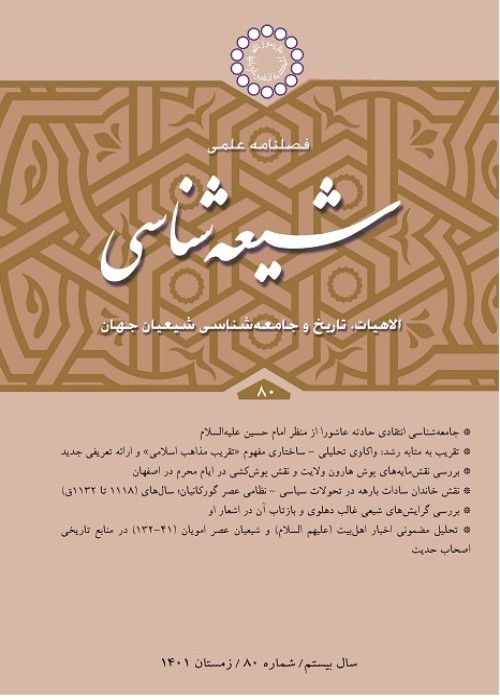Reasons for the Consistency Between Constitutionalism and the Islamic View In Akhud Khorasani's Political Thought
Author(s):
Abstract:
Religious scholars and clergies played an undoubted role in the Constitutional Movement in Iran. The most important measure taken by constitutionalist scholars was theorizing the tenets and elements of constitutionalism and the related concepts based on Islamic teachings, and naturalizing these concepts for the religious society of Iran. Akhund Khorasani, the great scholar of Najaf seminary and the master of many jurists and religious authorities of that time, was leading the constitutionalist scholars. One of the aspects of his influence on Constitutionalist Movement was his attempt to theorize constitutionalism and the new concepts and institutions introduced along with it in Iran, as well as his attempt to conform it to Islamic teachings based on Shiite political thought in the Occultation Period. The present article studies the arguments put forward by him for the Constitutionalist Movement. Akhund Khorasani, as a prominent jurist and scholar, dealt with this issue by postulating the theory of ‘usurpation of Shiite governance in the Occultation Period’, and by applying jurisprudential rules and those of principles of jurisprudence, such as “repelling worse with bad” and “protecting the Islamic territory”. He has recognized elements of constitutionalism in the west to prove the consistency of each of those elements with Islamic tenets, and regarded constitutionality of the government as the only way of freeing the country from the hegemony of the foreigners and an instance of ‘protecting the Islamic territory’. Akhund Khrasani’s approach to ‘constitutionalism’ and the related concepts – such as rule of law, limiting the sovereign’s power, representation, equality of all people before the law, as well as freedom of expression and criticism according to religious laws – has gone much beyond the limits of fatwa and religious justification – the task of most religious authorities. In view of unfamiliarity of the Iranian religious society with the abovementioned concepts from the beginning of twentieth century, he explained these doctrines with a religious approach.
Language:
Persian
Published:
Shiite Studies, Volume:10 Issue: 37, 2012
Page:
37
https://magiran.com/p1032496
دانلود و مطالعه متن این مقاله با یکی از روشهای زیر امکان پذیر است:
اشتراک شخصی
با عضویت و پرداخت آنلاین حق اشتراک یکساله به مبلغ 1,390,000ريال میتوانید 70 عنوان مطلب دانلود کنید!
اشتراک سازمانی
به کتابخانه دانشگاه یا محل کار خود پیشنهاد کنید تا اشتراک سازمانی این پایگاه را برای دسترسی نامحدود همه کاربران به متن مطالب تهیه نمایند!
توجه!
- حق عضویت دریافتی صرف حمایت از نشریات عضو و نگهداری، تکمیل و توسعه مگیران میشود.
- پرداخت حق اشتراک و دانلود مقالات اجازه بازنشر آن در سایر رسانههای چاپی و دیجیتال را به کاربر نمیدهد.
In order to view content subscription is required
Personal subscription
Subscribe magiran.com for 70 € euros via PayPal and download 70 articles during a year.
Organization subscription
Please contact us to subscribe your university or library for unlimited access!


